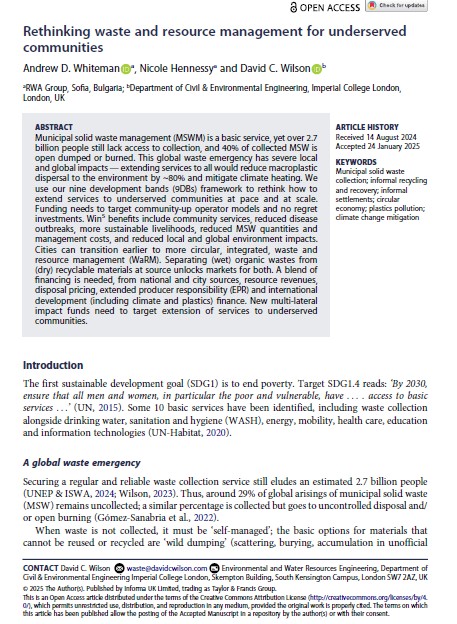Municipal solid waste management (MSWM) is a basic service, yet over 2.7 billion people still lack access to collection, and 40% of collected MSW is open-dumped or burned. This global waste emergency has severe local and global impacts — extending services to all would reduce macroplastic dispersal to the environment by ~80% and mitigate climate heating.

This paper uses the nine development bands (9DBs) framework to rethink how to extend services to underserved communities at pace and at scale. Funding needs to target community-up operator models and no-regret investments. Win benefits include community services, reduced disease outbreaks, more sustainable livelihoods, reduced MSW quantities and management costs, and reduced local and global environment impacts. Cities can transition earlier to more circular, integrated waste and resource management (WaRM). Separating (wet) organic wastes from (dry) recyclable materials at source unlocks markets for both. A blend of financing is needed, from national and city sources, resource revenues, disposal pricing, extended producer responsibility (EPR), and international development (including climate and plastics) finance. New multilateral impact funds must target the extension of services to underserved communities.


